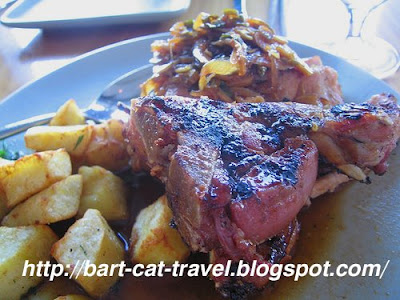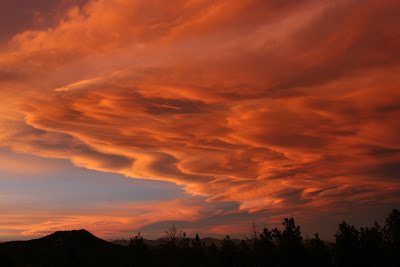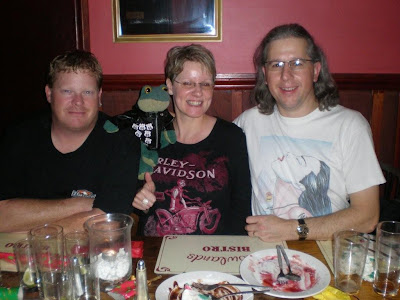
Well – I thought I’d follow up my last Lima Restaurant entry with a write up about my favourite Cusco Restaurants. Cusco, the capital of the ancient Inca Empire is a
Mecca for any tourist traveling to
Latin America. The old citadel – surrounded by numerous ruins that stand testament to the ingenuity and everlasting legacy of the Inca – has a number of very fine restaurants on offer. From traditional Andean cuisine to modern Spanish culinary delights, there is a never ending amount of cuisine available for the travelers looking for a good meal in the city. So here they are – my
Desert-Island All Time Top Five Cusco eateries in no particular order (except perhaps for the first which is my favourite):

Cicciolina’s
Cicciolina’s is Cusco best known and highest rated restaurant. Both the food and service are excellent. With great views over the crisscrossing street so of Cusco, the restaurant has some fantastic decoration that creates a warm and welcoming ambiance. The menu is made up of mainly Mediterranean dishes, many made with traditional ingredients. The salads are simply delicious and the homemade pastas are superb.
Tikka
A small bistro nestled in a corner of San Blas; it is located directly next door to Boutique Hotel Casa San Blas, a warm dining room atmosphere. The cuisine you’ll find at Tika is unlike anything you have ever tasted, combining Thai and Vietnamese flavors and cooking techniques with traditional Peruvian ingredients. Prepare to be pleasantly surprised with new flavors and combinations. Chill out ambiance music gives a nice rest from the traditional panpipes so commonly hard all over the city.
Jack’s Cafe
Jack’s Café is a great place for vegetarians, as they order huge salads, and a wide variety of cooked dishes made only with vegetables. The restaurant has a special hot chocolate which is very worthwhile. They have a neat ginger tea, which has an interesting taste, and it’s very good to ward off any colds. The menu is extensive—with a variety of sandwiches, salads, soups, and main dishes. The restaurant uses homemade bread to make their sandwiches and this is especially delicious!
Baco
Baco has the best wine selection in town. The restaurant provides a warm, relaxed atmosphere, entirely decorated in wood and iron, where you can enjoy finger foods like their grilled seafood platter, gourmet pizzas or the finest Argentinean beef in red wine and mushroom sauce, all cooked with the restaurant’s own particular fusion style. Also available is a series of grilled veggies platter. Open Monday to Saturday from 6pm to 11pm
Incanto
This restaurant opened in June 2006 and was built within an old Inca palace, magnificently located only a few meters away from the main square. Contemporary and minimalist, Incanto offers over 80 dishes with an Italian influence and often involving the grill, creatively infused with typical Peruvian ingredients. Their aji de gallina ravioli and smoked trout fetuccini are great examples of their accomplishments in fusion cuisine. Also try their entrees and grilled dishes like the Alpaca loin. The glass-encased kitchen and live harp music give Incanto a unique, classic touch among Cusco’s finest restaurants. Open Monday to Sunday from 10.30am to 11pm .

I hope this information helps any travelers heading to Cusco who'd be looking to eat well. As always - please feel free to contact me if you have any questions about traveling in the area.
Bart
www.cat-travel.com
.jpg) After a long 20 hours of traveling we finally arrived back home in Colorado. We Had a great time in England and really appreciate all the hospitality we were shown, and would like to say a big thank you to everyone for giving us a place to stay while we were there. England is a very pretty country and we want to see more of it. We may be coming back next fall for the NEC show again…I sure hope so, it was a lot of fun! So when we got home it was time to rest up a bit and get over the time difference. It had also been snowing a lot in our absence, and there was snow piling up every where.
After a long 20 hours of traveling we finally arrived back home in Colorado. We Had a great time in England and really appreciate all the hospitality we were shown, and would like to say a big thank you to everyone for giving us a place to stay while we were there. England is a very pretty country and we want to see more of it. We may be coming back next fall for the NEC show again…I sure hope so, it was a lot of fun! So when we got home it was time to rest up a bit and get over the time difference. It had also been snowing a lot in our absence, and there was snow piling up every where.
























